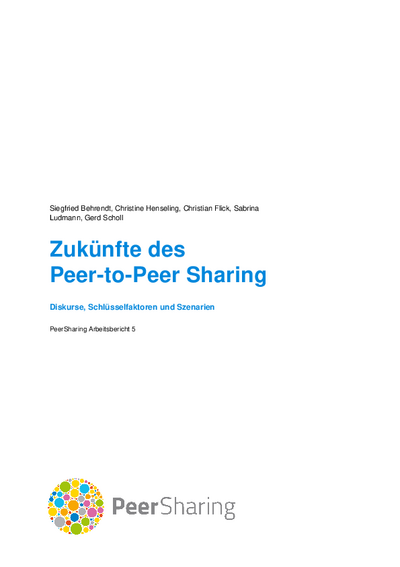Futures of the peer-to-peer sharing concept Discourses, key factors and scenarios
This paper develops scenarios which illustrate possible development paths and provide guidance on how to realize the potentials of peer-to-peer sharing in support of a sustainability-based economy. In a trend scenario, a possible course of development based on resilient trends is shown. In a transformation scenario, the potentials of peer-to-peer sharing are placed in the context of socio-ecological change. The trend scenario indicates that peer-to-peer sharing with its platforms is not a temporary phenomenon. After the start-up phase, followed by a period of rapid growth and rapid expansion, the peer-to-peer sharing market is undergoing a process of consolidation, differentiation and transition characterized by business closures, mergers, new business and revenue models and collaborations. The market is developing very dynamically but also very heterogeneously in different fields of consumption. The challenge in the context of business model diffusion is to shape the process of transformation from niche into societal mainstream in a way that resource efficiency potentials of more intensive product use are maximized without leaving other public interests behind. This is what the transformation scenario focusses on. In addition to the sustainable design of platform-based business models and the creation of appropriate political and legal frameworks, it is important that commercial peer-to-peer sharing is generally embedded in a sustainable mode of consumption. Only then, existing sustainability potentials can be realized on a larger scale.



